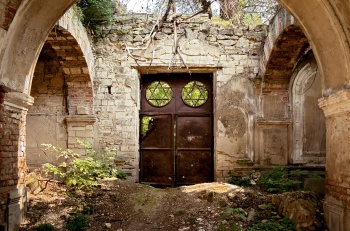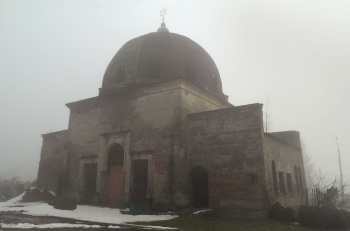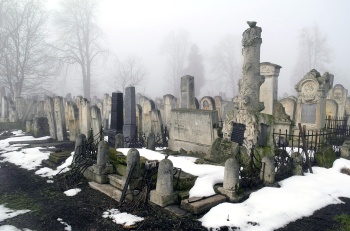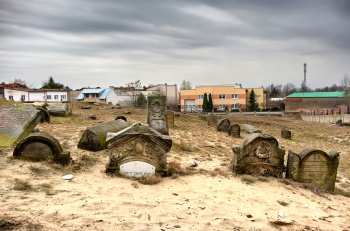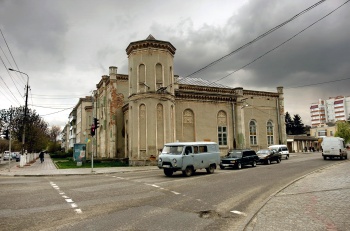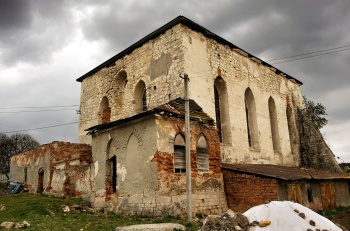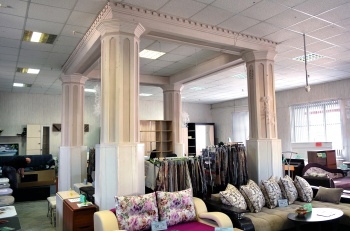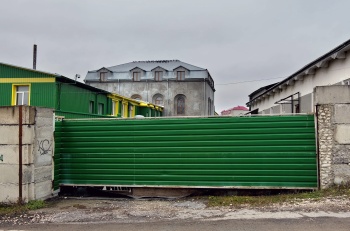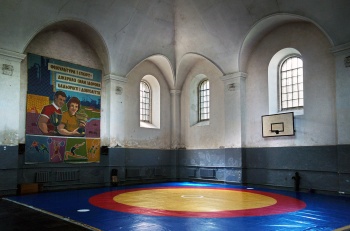OSTEUROPA NACH DEM HOLOCAUST - VOM VERSCHWINDEN DER SCHTETL
- Genre
- Dokumentation
- Format
- HD
- Länge
- 45 min
- Land/Jahr
- DE 2022
- Regie
- Susanne Brahms
Ein Kriegsziel der Nazis waren die reichen Kornkammern der Ukraine. Ausgerechnet dort stießen die Nazis auf Millionen osteuropäische Juden, die in kleinen Städtchen, den Schtetln, oft ein sehr traditionelles, religiöses Leben führten. Noch bevor das systematische Morden in den großen Vernichtungslagern wie Auschwitz begann, ermordeten Sonderkommandos der Nazis in diesem „Holocaust durch Kugeln“ rund zwei Millionen Menschen, schätzt man heute.
Die Dokumentation reist zu den letzten noch existierenden Schauplätzen einer ehemals reichen jüdischen Kultur, aber auch eines monströsen Verbrechens. Viele Massengräber sind bis heute unbekannt, und das Erbe der Schtetl ist massiv bedroht. Denn obwohl es Menschen gibt, die sich um ihren Erhalt bemühen, werden bald weitere Synagogen und historische Häuser der jüdischen Bevölkerung verschwunden sein.
Eastern Europe after the holocaust - about the disappearance of the Shtetl
A war target of the Nazis were the rich grain depots in the Ukraine. Here, of all places, the Nazis encountered millions of east European Jews who often led very traditional religious lives in small towns called Shtetls. Even before the systematic killing of Jews in large extermination camps such as Auschwitz began, it is estimated today that special Nazi commandos murdered about two million people in this “holocaust of bullets”.
The documentary not only takes us on a journey to the last remaining locations of a former rich Jewish culture, but also to places where monstrous crimes were committed. Even up to the present day, the sites of many mass graves are unknown and the heritage of the Shtetls is enormously threatened. Even though there are people who endeavour to preserve them, additional synagogues and historical buildings of the Jewish population will soon have disappeared.
Buch, Regie/script, director: Susanne Brahms
Produktion/production: BlindCat Documentary GmbH
ProduzentInnen/producers: Rainer Krause, Susanne Brahms
Herstellungsleitung, Ton/line producer, sound: Rainer Krause
Kamera/camera: Matthias Kind
Schnitt, Postproduktion/editing, post-production: Safy Jana Reske
Mischung/sound mix: Frank Buermann
Musik/music: Mariana Sadovska, Sonoton
Sprecher/speaker: Robert Levin
Mitwirkender/with: Christian Herrmann
Redaktion/commissioning editor: Michaela Herold, Radio Bremen
Fotos/photos: © Radio Bremen/Matthias Kind, Christian Herrmann
Susanne Brahms *1965 in Westerstede; Studium Geschichte und Politik; seit 1994 Redakteurin und Autorin bei Radio Bremen; seit 2000 zahlreiche Reportagen und Dokumentationen
Susanne Brahms *1965 in Westerstede; studied History and Politics; editor and author for Radio Bremen since 1994; numerous reports and documentaries since 2000
Drehorte/locations: Deutschland (Berlin), Ukraine (Liw, Ternopil, Czernowitz, Mohyliw-Podilskyj, Tschernivtsi), Polen (Kolbuszowa, Bilgoraj)
Drehzeit/shooting time: 19.08.2021-10.09.2021
Erstausstrahlung: 04.04.2022, ARD
Förderung/financial support: nordmedia - Film- und Mediengesellschaft Niedersachsen/Bremen mbH (Produktion/production)
Information:
BlindCat Documentary GmbH
Susanne Brahms
Hinter der Balge 5
28195 Bremen
E-Mail: brahms@blindcat.tv

